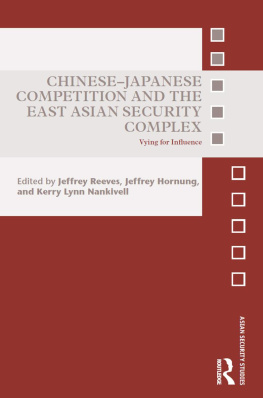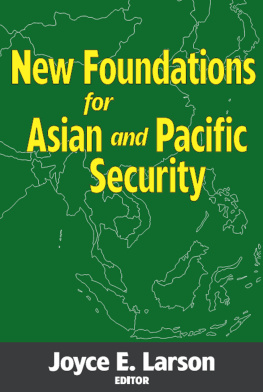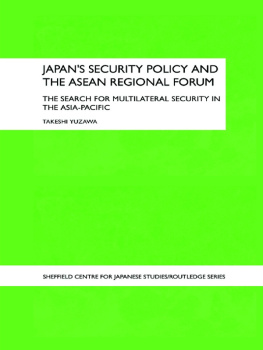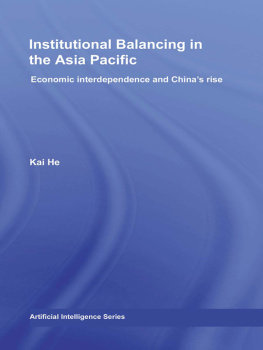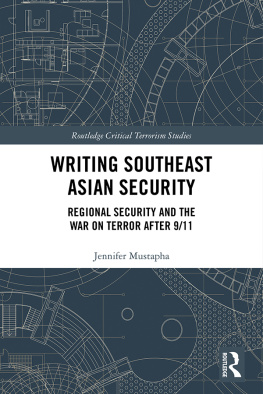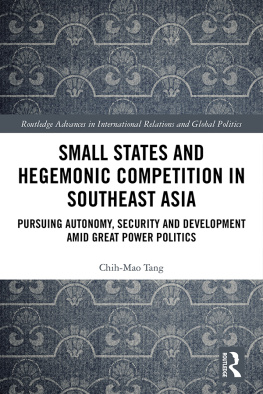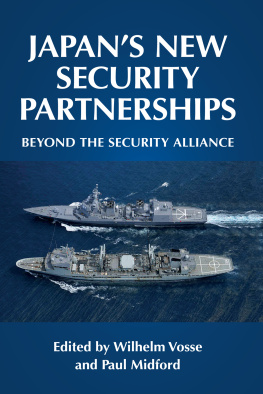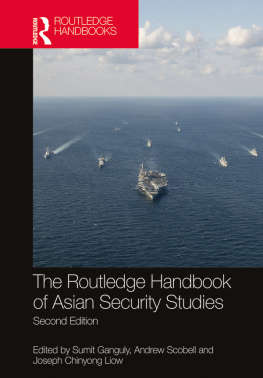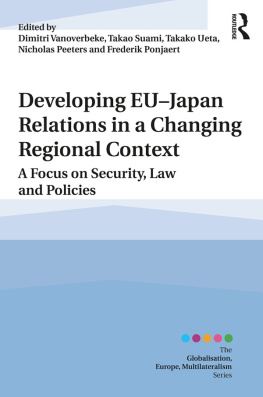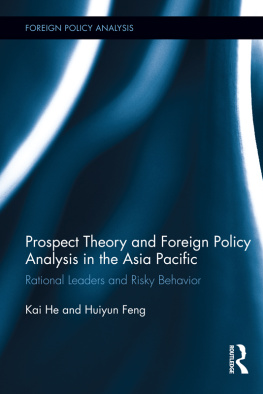ChineseJapanese Competition and the East Asian Security Complex
This volume examines contemporary diplomatic, economic, and security competition between China and Japan in the Asia-Pacific region.
The book outlines the role that Sino-Japanese competition plays in East Asian security, an area of study largely overlooked in contemporary writing on Asian security, which tends to focus on USChina relations and/or US hegemony in Asia. The volume focuses on Chinese and Japanese foreign policy under President Xi Jinping and Prime Minister Shinz Abe, and regional security dynamics within and between Asian states/institutions since 2012. It employs regional security complex theory as a theoretical framework to view Chinese and Japanese competition in the Asian region. In doing so, the volume draws on a levels of analysis approach to demonstrate the value in looking at security in the Asia-Pacific from a regional rather than global perspective. The vast majority of existing research on the regions security tends to focus on great power relations and treats Asia as a sub-region within the larger global security architecture. In contrast, this volume shows how competition between the two largest Asian economies shapes East Asias security environment and drives security priorities across Asias sub-regions. As such, this collection provides an important contribution to discussion on security in Asia; one with potential to influence both political and military policy makers, security practitioners, and scholars.
This book will be of much interest to students of Asian politics, regional security, diplomacy, and international relations.
Jeffrey Reeves is Associate Professor in the College of Security Studies at the Daniel K. Inouye Asia-Pacific Center for Security Studies in Hawaii, US.
Jeffrey Hornung is a Political Scientist in the Defense and Political Sciences Department at the RAND Corporation, US.
Kerry Lynn Nankivell is Associate Professor in the College of Security Studies at the Daniel K. Inouye Asia-Pacific Center for Security Studies in Hawaii, US.
Asian Security Studies
Series editors: Sumit Ganguly, Indiana University, Bloomington, Andrew Scobell, Research and Development (RAND) Corporation, Santa Monica, and Joseph Chinyong Liow, Nanyang Technological University, Singapore.
Few regions of the world are fraught with as many security questions as Asia. Within this region it is possible to study great power rivalries, irredentist conflicts, nuclear and ballistic missile proliferation, secessionist movements, ethnoreligious conflicts, and inter-state wars. This book series publishes the best possible scholarship on the security issues affecting the region, and includes detailed empirical studies, theoretically oriented case studies, and policy-relevant analyses as well as more general works.
Globalization and Security Relations across the Taiwan Strait
In the shadow of China
Edited by Ming-chin Monique Chu and Scott L. Kastner
Multilateral Asian Security Architecture
Non-ASEAN stakeholders
See Seng Tan
Chinese Foreign Relations with Weak Peripheral States
Asymmetrical economic power and insecurity
Jeffrey Reeves
Democratic Transition and Security in Pakistan
Edited by Shaun Gregory
Chinas Use of Military Force in Foreign Affairs
The dragon strikes
Markus B. Liegl
Regional Institutions, Geopolitics and Economics in the Asia Pacific
Evolving interests and strategies
Edited by Steven B. Rothman, Utpal Vyas and Yoichiro Sato
Chinese-Japanese Competition and the East Asian Security Complex
Vying for influence
Edited by Jeffrey Reeves, Jeffrey Hornung, and Kerry Lynn Nankivell
ChineseJapanese Competition and the East Asian Security Complex
Vying for Influence
Edited by Jeffrey Reeves, Jeffrey Hornung, and Kerry Lynn Nankivell
First published 2017
by Routledge
2 Park Square, Milton Park, Abingdon, Oxon OX14 4RN
and by Routledge
711 Third Avenue, New York, NY 10017
Routledge is an imprint of the Taylor & Francis Group, an informa business
2017 Selection and editorial material, Jeffrey Reeves, Jeffrey Hornung, and Kerry Lynn Nankivell; individual chapters, the contributors
The right of the editors to be identified as the authors of the editorial material, and of the authors for their individual chapters, has been asserted in accordance with sections 77 and 78 of the Copyright, Designs and Patents Act 1988.
All rights reserved. No part of this book may be reprinted or reproduced, or utilized in any form or by any electronic, mechanical, or other means, now known or hereafter invented, including photocopying and recording, or in any information storage or retrieval system, without permission in writing from the publishers.
Trademark notice: Product or corporate names may be trademarks or registered trademarks, and are used only for identification and explanation without intent to infringe.
British Library Cataloguing-in-Publication Data
A catalogue record for this book is available from the British Library
Library of Congress Cataloging-in-Publication Data
A catalog record has been requested for this book
ISBN: 978-1-138-21906-9 (hbk)
ISBN: 978-1-315-43633-3 (ebk)
Typeset in Times New Roman
by Keystroke, Neville Lodge, Tettenhall, Wolverhampton
Contents
MICHAEL JONATHAN GREEN
JEFFREY REEVES
JEFFREY REEVES AND JEFFREY HORNUNG
PART I
Security institutions
MIE OBA
RAMON PACHECO PARDO
VLADO VIVODA
PART II
Security issues
KERRY LYNN NANKIVELL
LORA SAALMAN
PART III
Security relations
NICK BISLEY
ALEXANDER L. VUVING AND THUY T. DO
RENATO CRUZ DE CASTRO
JEFFREY HORNUNG, KERRY LYNN NANKIVELL, AND JEFFREY REEVES
The editors would like to acknowledge their family members, all of whom were instrumental in providing the time, space, and motivation need to put this book together. The editors would also like to thank the Daniel K. Inouye Asia Pacific Center for Security Studies and the Sasakawa Peace Foundation USA for their institutional support during the writing process. The editors reserve special thanks to the volumes numerous contributors, without whom the editors could not have realized their vision.
The post-war neoliberal order is under greater duress than at any point since the Cold War ended. International relations theorists have groped for explanations why. Is it the relative decline of American power and the rise of a new bipolarity with China? Is it the diffusion of power away from states and the emergence of a non-polar world? Is it the rise of post-modern global challenges such as climate change or terrorism that will unify former rivals around a common cause?
Thus far none of these hypotheses has been validated by the realities of international security developments on the ground. What has become unmistakably clear is that the post-war neoliberal order is under direct assault in Europe, Asia, and the Middle East by aspiring revisionist powers that seek to dilute American alliances, institutions, and norms in an effort to restore their own historic privileges. In aggregate these developments represent a profound challenge to the established international order, but it can only be truly understood region by region. This is something that theorists in search of universal truths or policy planners in search of global themes find difficult to do.

